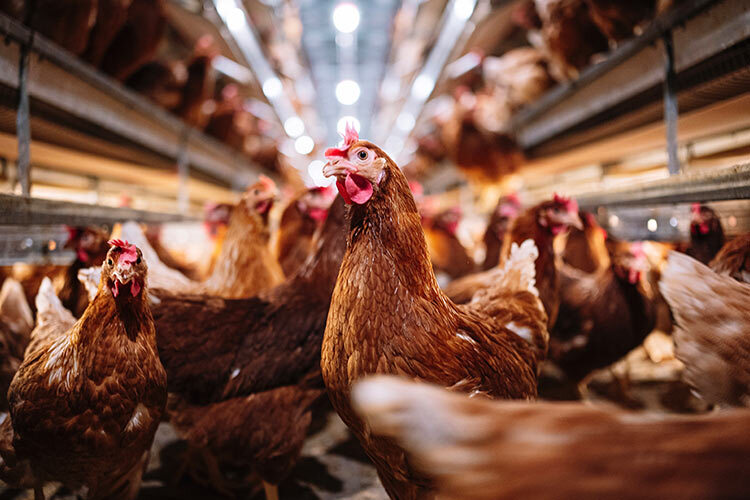The World Health Organization (WHO) announced on June 5 the death of a human due to infection with the A(H5N2) subtype of bird flu, detected by a laboratory in Mexico.
The international organism reported that the 59-year-old resident of the State of Mexico passed away on April 24 after experiencing fever, respiratory difficulty, diarrhea, nausea, and general malaise.
However, on Friday, June 7, the Mexican Ministry of Health, despite having confirmed the death from this cause at first, rectified that the patient died from other ailments.
This marks the first laboratory-confirmed human case of infection with an influenza A(H5N2) virus reported globally and the first avian H5 virus infection in a person reported in Mexico.
The victim had no history of exposure to poultry or other animals, according to the WHO.
In Mexico, cases of bird flu (H5N2) have been reported in poultry.
The person had multiple previous medical conditions such as chronic kidney disease, type 2 diabetes and high blood pressure and had been bedridden for three weeks for other reasons prior to the onset of acute symptoms, WHO said.
Upon showing symptoms, the patient was hospitalized on April 24 at the National Institute of Respiratory Diseases Ismael Cosío Villegas (INER) in Mexico City but passed away the same day after his condition worsened.
The Mexican Ministry of Health had confirmed the case on Wednesday while adding that the patient’s sample tested positive for influenza A and the type of influenza he was suffering from was not identified at first instance.
No further cases of bird flu have been reported following the epidemiological investigation, which included tracing contacts at the hospital where the 59-year-old man died.
“Based on available information, WHO assesses the current risk to the general population posed by this virus as low,” the organization added in a statement.
How Do Humans Contract Avian Influenza?
On April 29, the WHO issued a warning about a variant of avian influenza affecting humans, particularly the highly pathogenic A(H5N1) virus, which has caused 28 human cases since 2021.
Whenever avian influenza viruses circulate among poultry, there is a risk of infection, including small clusters of human cases due to exposure to infected poultry or contaminated environments.
Therefore, sporadic human cases are not unexpected. Previously, human cases of infection with other H5 subtypes, such as A(H5N1), A(H5N6), and A(H5N8), have been reported.
Infections in livestock are of the same avian influenza subtype that has been affecting wild birds and poultry flocks worldwide, also killing several mammal species likely infected by consuming sick or dead birds.
In March 2024, a high pathogenicity avian influenza A(H5N2) outbreak was detected in a backyard poultry farm in the state of Michoacán.
Additionally, in March 2024, an outbreak of low pathogenicity avian influenza (LPAI) A(H5N2) was identified in poultry in Texcoco, State of Mexico, and a second outbreak of LPAI A(H5N2) in April in the municipality of Temascalapa in the same state.
Thus far, it has not been possible to establish if this human case is related to the recent poultry outbreaks.
Is It Safe to Consume Animal-Based Foods?
The WHO considers the public health risk to be low, indicating that consuming well-cooked chicken or eggs poses no danger to human health. Nevertheless, the following daily recommendations are advised:
- Frequently wash hands with soap and water or 70 percent alcohol-based solutions.
- Wear a mask if experiencing respiratory symptoms and ensure proper ventilation in spaces.
- Cover your mouth and nose when coughing or sneezing.
- Wash hands before handling cooked foods and after handling raw foods.
- Properly cook chicken and eggs (above 70°C).
- Do not use the same utensils for handling raw and cooked foods.
- Avoid touching or approaching wild animals.
- Do not handle or pick up dead animals.
- Do not touch sick or dead poultry or livestock if the cause of death is unknown. (With information from Reuters).















